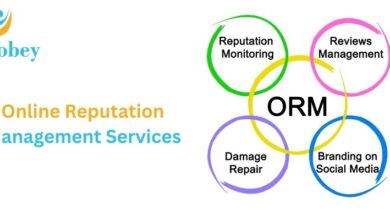Explain The Impact of Legal Environment on Business
The legal environment significantly influences business operations, strategies, and overall success. This article explores the multifaceted explain the impact of legal environment on business, highlighting how laws and regulations shape various aspects of business activities.
Understanding the Legal Environment
The legal environment refers to the framework of laws, regulations, and policies that govern business activities. This framework encompasses a wide array of legal domains, including corporate law, tax law, employment law, consumer protection law, intellectual property law, and environmental law. These laws are designed to ensure fair competition, protect consumers, safeguard employees, and preserve the environment. Understanding and navigating this legal landscape is crucial for businesses to operate efficiently and ethically.
Read More : False Promise of Marriage
Key Legal Domains Affecting Business
1. Corporate Law:
Corporate law governs the formation, management, and dissolution of companies. It impacts business by defining the legal structure of entities, such as sole proprietorships, partnerships, and corporations. The choice of legal structure affects liability, taxation, and regulatory obligations. For instance, corporations offer limited liability protection to shareholders but come with more stringent regulatory requirements compared to sole proprietorships.
2. Tax Law:
Tax regulations dictate how businesses are taxed at the federal, state, and local levels. These laws influence business decisions related to investment, expansion, and pricing. Compliance with tax laws is essential to avoid legal penalties and fines. Tax incentives and credits can also encourage businesses to invest in specific areas, such as renewable energy or research and development.
3. Employment Law:
Employment laws regulate the relationship between employers and employees. These laws cover areas such as minimum wage, workplace safety, anti-discrimination policies, and employee benefits. Non-compliance with employment laws can lead to lawsuits, financial penalties, and reputational damage. On the other hand, robust compliance can enhance employee satisfaction and productivity.
4. Consumer Protection Law:
These laws are designed to protect consumers from unfair business practices. They cover aspects such as product safety, advertising, and fair trading practices. Businesses must ensure their products meet safety standards and that their marketing practices are truthful and not misleading. Violations can result in legal action, fines, and loss of consumer trust.
5. Intellectual Property Law:
Intellectual property (IP) laws protect the creations of the mind, such as inventions, literary and artistic works, and symbols. These laws provide businesses with exclusive rights to their innovations and brand identities. Proper management of IP rights can provide a competitive advantage, while infringement of others’ IP can lead to costly legal disputes.
6. Environmental Law:
Environmental regulations aim to protect the environment by controlling pollution and promoting sustainable practices. Businesses must comply with regulations related to emissions, waste management, and resource usage. Non-compliance can result in severe penalties and harm to a company’s reputation. Conversely, adopting sustainable practices can improve a business’s public image and operational efficiency.
The Impact of Legal Environment on Business Operations
1. Compliance Costs and Administrative Burden:
Adhering to legal requirements involves significant costs and administrative efforts. Businesses need to invest in legal expertise, compliance systems, and employee training. Small businesses, in particular, may find these costs burdensome. However, non-compliance can result in more severe financial penalties, making the investment in compliance essential.
2. Risk Management and Legal Liability:
The legal environment helps businesses manage risks and avoid liabilities. By adhering to laws and regulations, businesses can minimize the risk of legal disputes and litigation. This is particularly important in highly regulated industries, such as pharmaceuticals and finance, where legal breaches can lead to substantial fines and damage to reputation.
3. Market Entry and Expansion:
Legal regulations can influence market entry and expansion strategies. Companies need to navigate varying legal requirements across different jurisdictions. For example, a company expanding internationally must understand the legal environment of the target market, including regulations on foreign investment, labor laws, and import-export controls. Failure to comply with local laws can hinder market entry and result in legal repercussions.
4. Corporate Governance and Ethical Practices:
Legal requirements shape corporate governance practices, ensuring that businesses operate transparently and ethically. Regulations related to financial reporting, board composition, and shareholder rights promote accountability and protect stakeholders’ interests. Strong corporate governance enhances investor confidence and can attract investment.
5. Innovation and Intellectual Property Protection:
The legal environment encourages innovation by protecting intellectual property rights. Businesses can invest in research and development with the assurance that their inventions will be safeguarded. This protection is vital for industries such as technology and pharmaceuticals, where significant resources are devoted to innovation. On the flip side, businesses must also be vigilant to avoid infringing on the IP rights of others, which can lead to costly legal battles.
6. Consumer Trust and Market Reputation:
Adherence to consumer protection laws builds consumer trust and strengthens market reputation. Businesses that prioritize product safety, honest marketing, and fair practices are more likely to gain consumer loyalty. Conversely, legal violations related to consumer rights can lead to lawsuits, negative publicity, and loss of customer trust.
Challenges and Opportunities
1. Navigating Regulatory Complexity:
The complexity and variability of legal requirements across different jurisdictions pose challenges for businesses. Companies operating in multiple regions must stay informed about changes in laws and regulations to ensure compliance. This requires ongoing legal support and robust compliance management systems.
2. Adapting to Regulatory Changes:
The legal environment is dynamic, with regulations evolving to address emerging issues such as data privacy, cybersecurity, and environmental sustainability. Businesses must be agile and proactive in adapting to these changes. For instance, the introduction of data protection regulations, like the General Data Protection Regulation (GDPR) in the European Union, requires businesses to implement stringent data management practices.
3. Leveraging Legal Incentives:
Governments often provide legal incentives to promote specific business activities, such as tax credits for renewable energy investments or grants for technological innovation. Businesses that effectively leverage these incentives can gain a competitive edge. This requires a thorough understanding of available incentives and strategic planning to maximize their benefits.
4. Mitigating Legal Risks:
Businesses need to implement robust risk management strategies to mitigate legal risks. This includes conducting regular legal audits, training employees on compliance, and establishing clear policies and procedures. Proactive risk management can prevent legal issues and minimize their impact if they arise.
5. Fostering Ethical Business Practices:
Beyond compliance, businesses have an opportunity to foster ethical practices that go beyond legal requirements. This includes corporate social responsibility initiatives, sustainability efforts, and fair labor practices. Ethical business practices enhance brand reputation, attract socially conscious consumers, and can lead to long-term success.
Conclusion
The legal environment plays a pivotal role in shaping business operations and strategies. While compliance with laws and regulations can be challenging and costly, it is essential for mitigating risks, protecting stakeholders, and ensuring long-term success. By understanding and navigating the legal landscape, businesses can not only avoid legal pitfalls but also leverage legal frameworks to drive innovation, foster ethical practices, and build consumer trust. The dynamic nature of the legal environment requires businesses to be proactive, adaptable, and committed to continuous improvement in their compliance and governance practices.



